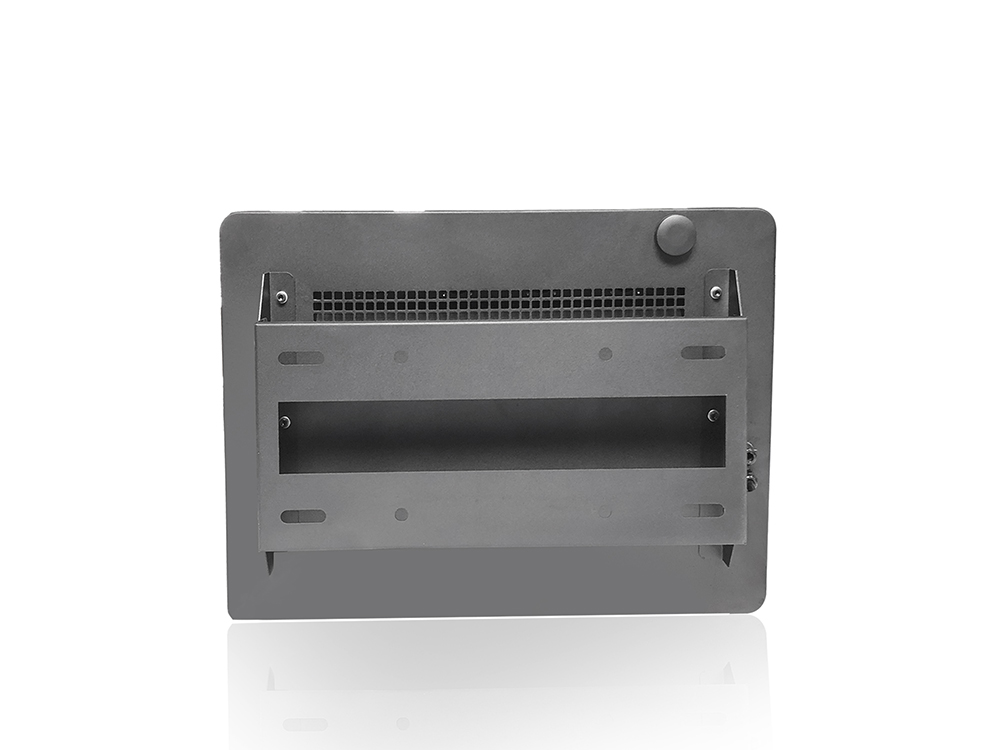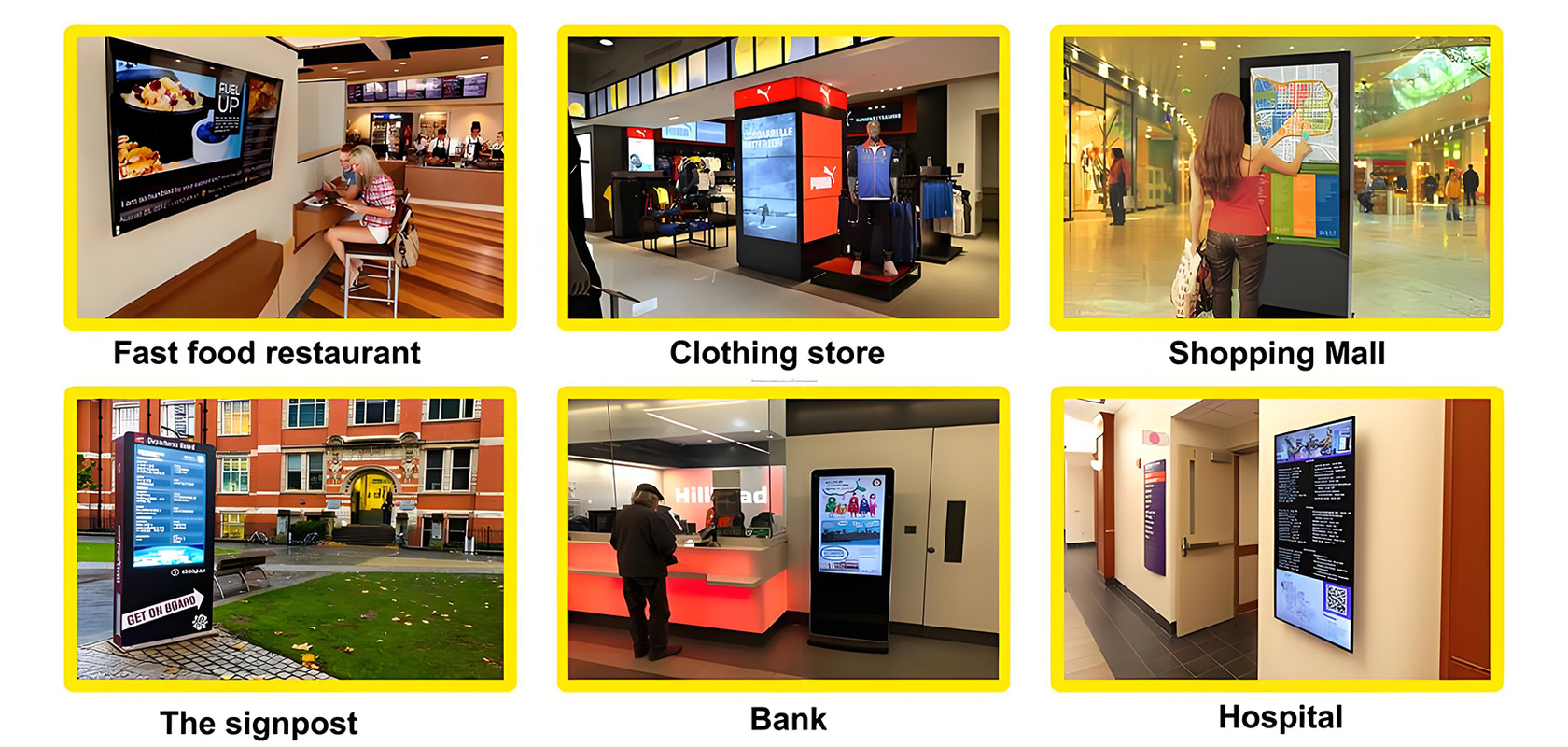Is Digital Signage Suitable for Small Businesses
In the realm of modern marketing and communication, digital signage has emerged as a powerful tool, transforming the way businesses engage with their audiences. Typically associated with large corporations and bustling urban environments, digital signage involves the use of electronic displays to showcase dynamic content such as videos, images, and real-time information. While it's easy to see how such technology can benefit big players with ample resources, the question arises: Is digital signage suitable for small businesses? This article delves into the intricacies of digital signage for small enterprises, exploring its benefits, challenges, and the factors that determine its suitability.

The Appeal of Digital Signage for Small Businesses
Firstly, it's important to understand why digital signage might be attractive to any business, regardless of size. One of the primary advantages is its ability to capture attention. Unlike static posters or printed materials, digital displays can present vibrant, moving content that is more likely to engage passersby. This is particularly valuable for small businesses looking to stand out in competitive markets where every customer counts.
Moreover, digital signage offers unparalleled flexibility. Content can be updated instantly, allowing businesses to promote new products, announce special offers, or share important information with their audience at a moment's notice. This dynamic nature ensures that the messaging remains relevant and timely, enhancing the overall effectiveness of the communication strategy.
Another significant benefit is the potential for cost-effectiveness in the long run. While the initial investment in digital signage hardware may seem steep for small businesses, the durability and reusability of digital displays can offset this cost over time. Unlike printed materials that need regular replacement, digital content can be updated indefinitely without additional printing expenses.
Tailored Solutions for Small Spaces
One of the misconceptions about digital signage is that it requires large, elaborate setups suitable only for spacious environments. However, advancements in technology have led to the development of compact, versatile digital signage solutions that are perfect for small businesses. For instance, small-scale LED or LCD screens can be mounted on walls or placed on countertops, making them ideal for storefronts, cafes, or even salons.
These tailored solutions not only save space but also ensure that the digital signage integrates seamlessly into the existing decor. Small businesses can leverage this technology to enhance the aesthetic appeal of their premises while conveying important information in an engaging manner.
Enhancing Customer Experience
Customer experience is a critical factor for any business, and digital signage can play a pivotal role in elevating it. By providing real-time updates, such as wait times, promotions, or event schedules, small businesses can keep their customers informed and entertained. This transparency fosters a sense of trust and reliability, encouraging customers to choose the business over competitors.
Furthermore, interactive digital signage can take customer engagement to the next level. Touchscreens or motion-sensor-activated displays can provide a more immersive experience, allowing customers to explore products, access detailed information, or even play interactive games. While interactive elements may require a higher initial investment, they can significantly enhance the overall customer experience, potentially leading to increased sales and customer loyalty.
Challenges and Considerations
Despite its numerous advantages, digital signage is not without its challenges, especially for small businesses. The primary concern is the initial cost. Purchasing high-quality displays, installing them, and ensuring they are connected to a reliable content management system can be a significant financial burden. Small businesses need to carefully assess their budgets and weigh the long-term benefits against the upfront expenses.
Another challenge is content creation and management. To make the most of digital signage, the content needs to be visually appealing, relevant, and updated regularly. Small businesses may lack the in-house expertise to create such content, necessitating the hiring of a graphic designer or a digital signage specialist. Additionally, managing the content, scheduling updates, and monitoring the displays' performance can be time-consuming, diverting resources from other critical business areas.
Technical issues are another potential hurdle. Digital signage systems can be complex, and technical glitches or malfunctions can disrupt the display, negating the benefits of the technology. Small businesses need to ensure they have access to reliable technical support to address any issues promptly.
Determining Suitability
Whether digital signage is suitable for a small business ultimately depends on several factors. The first is the business's target audience. If the target audience is tech-savvy and responsive to digital communication, digital signage is likely to be effective. Conversely, if the audience prefers traditional methods of communication, the investment may not yield the desired returns.
The nature of the business also plays a crucial role. Retail stores, restaurants, and salons can significantly benefit from digital signage by showcasing products, promoting special offers, or providing entertainment. However, businesses that rely less on visual communication, such as consulting firms or professional services, may find the technology less beneficial.
The business's location is another consideration. In high-traffic areas, digital signage can attract the attention of a large number of potential customers. However, in less busy locations, the impact may be limited, making the investment less justifiable.
Lastly, the business's long-term goals and marketing strategy are essential factors. Digital signage should be viewed as part of a broader marketing plan, complementing other communication channels such as social media, email marketing, and print materials. Small businesses need to ensure that digital signage aligns with their overall objectives and enhances their marketing efforts.
In conclusion, digital signage can be a valuable asset for small businesses, offering numerous benefits such as attention-grabbing appeal, flexibility, and cost-effectiveness in the long run. Tailored solutions for small spaces and the ability to enhance customer experience further make digital signage an attractive option. However, small businesses need to carefully consider the challenges, including the initial cost, content creation and management, and technical issues.
The suitability of digital signage for a small business depends on factors such as the target audience, the nature of the business, the location, and the long-term marketing strategy. By thoroughly assessing these factors and weighing the pros and cons, small businesses can make an informed decision about whether digital signage is the right choice for them. Ultimately, when implemented correctly, digital signage can be a powerful tool that helps small businesses compete in today's dynamic marketplace.
Application scenarios of digital signage

Tags:
self service kiosk touch kiosk digital signage interactive display interactive touch whiteboard kiosk video wall wall outdoor kiosk IP68 IP67 screen Shopping MallCurrent article link:
https://www.lcdkiosk.com/news/1308.html







